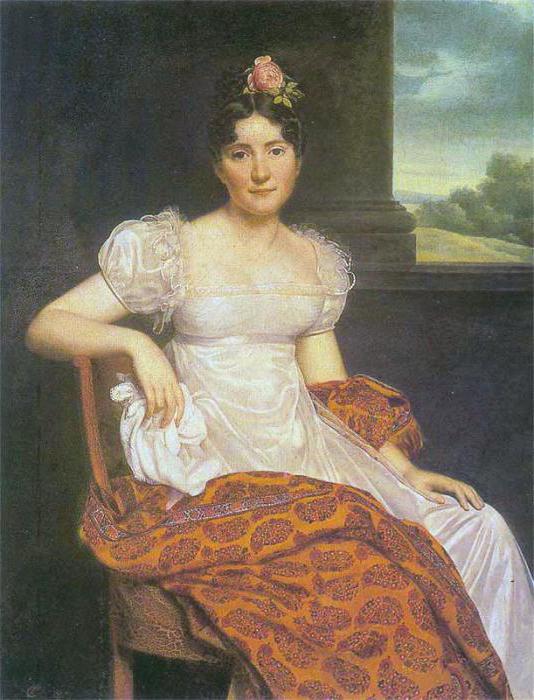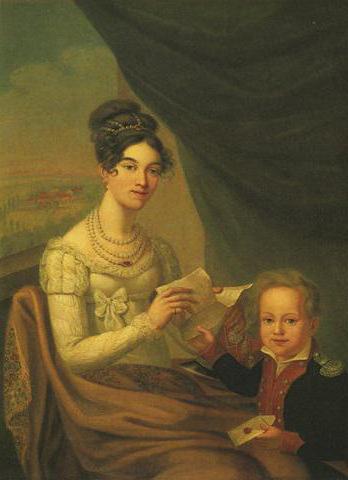Grand Duke Konstantin Pavlovich Romanov (1779–1831) was preparing for his great fate with his grandmother Catherine II — he was to become emperor of the Byzantine Empire. But the skin of an unkilled bear is not shared. Constantinople remained under the rule of the Turks, and such a high mission did not fall to Konstantin Pavlovich. As fortune-tellers say, the card lay down, foreshadowing war and the throne, and love, and unexpected death.
Birth
Konstantin Pavlovich Romanov was the second son of the unfortunate Pavel Petrovich, whose throne was usurped by his own mother. He was born on April 27, 1779 in Tsarskoye Selo. For his father, it was a second marriage. There were no children in the first, and now that he is married to Maria Fyodorovna, he is forced to unconditionally give his two older sons to his mother for upbringing. Pavel Petrovich himself succeeds in raising only two younger sons and four daughters.
Parenting
In honor of the christenings of Konstantin Pavlovich, a medal depicting Catherine II on the obverse was issued, and on the reverse were the figures of Faith, Hope and Love, with Love holding the baby in the distance, and in the distance the dome of St. Sophia was visible - so many hopes were placed on Constantine's grandmother. In the first years, Countess Sophia Benckendorf took care of him.
Mother Maria Fyodorovna had the right to visit him, and nothing more. From the age of four her two sons began to bring up Adjutant General Nikolai Saltykov. It was believed that he could train future warriors. Alexander was an obedient student, but Konstantin was distinguished by his willfulness and did not want to learn. But when the teenager was enrolled in the Guards Corps and under his command there were about a hundred grenadiers, he showed zeal: he fainted both soldiers and officers, swooning, considering them only machines.
Marriage
At 17, Konstantin Pavlovich Romanov married. The bride, of course, was picked up by his grandmother.
He was asked to choose one of the three daughters of the Duke of Saxe-Coburg-Saalfeld. He married a younger fifteen-year-old girl, whom Anna Fedorovna began to call in baptism. The young people received the Marble Palace as a gift, but their life did not work out. The girl loved balls, poetry, which is quite natural, and her husband preferred to keep her in austerity, which reached the point of bullying, and outright rudeness, and demanded unconditional obedience from his wife. Konstantin Pavlovich Romanov was very similar both externally and internally to his father Pavel Petrovich: he had the same explosive and unpredictable character.
Therefore, under the pretext that her mother was sick, the young wife left Russia in 1801 so that she would never return to her. For five years of marriage, a young woman of which she had not suffered from an unbridled spouse and in no case did not want to be a Russian princess.
Father board
In 1796, the great grandmother died. Konstantin Pavlovich frankly rejoiced. And not in vain - Father Paul I, loving his second son, made him the commander of the Izmailovsky regiment, increased his maintenance and gave him a palace in Strelna. And in 1799, the Italian and Swiss campaign of A.V. Suvorov took place, where Konstantin Pavlovich showed himself a valiant warrior.
War, military service were his calling. He was a warrior to the marrow of bones.
Bypassing his eldest and hated son, Alexander Paul I issued a decree where Konstantan Pavlovich was granted the title of Cesarevich. At that time, Konstantin Pavlovich was only twenty years old, and, in addition, a loving father awarded him the Diamond
Maltese Cross and gave him under the command of the Life Guards of the Horse Regiment.
Board of brother Alexander
Konstantin Pavlovich Romanov continued to faithfully serve his brother and Russia. During the Napoleonic Wars in the battle of Austerlitz, he commanded a corps and was a brave warrior, received the Order of St. George of the III degree.
But in St. Petersburg, Konstantin Pavlovich drank heavily and led an unbridled, dashing life, which his brother, seeing the discrediting of the tsar's family, still could not stop. This shameless drunkard, even, as they used to say, a rapist, participated in a
sin that was hushed up by the efforts of his mother, the Dowager Empress, who suddenly fell in love with the saleswoman Josephine Friderichs.
First passion
The girl, through the efforts of a wealthy English patron, received a good education, but he died without marrying her and leaving no inheritance. Josephine purposefully sought her husband and found in London Baron Friederichs from Russia. But two weeks after the marriage, the husband realized that the young beauty did not have money. Then, on the pretext that he was being called on to work, he left for Russia, but promised to send her money for a trip to his new homeland. However, I forgot to do it. After waiting, the girl collected all the money and arrived in St. Petersburg in 1805. After a long search, she managed to find out that her husband lives in the barracks, he is just a courier and now he is in the Caucasus. She waited for his return, but her husband turned out to be not the kind young man he was in London. Then the young woman decided to captivate the Grand Duke.

That was around 1807. At the masquerade, the beauty met Konstantin Pavlovich and told him her pitiful story, making every effort to charm him. The Grand Duke quickly divorced the beauty with her husband, took him to him, and in 1808 a young woman bore him a son.

He was called Paul, the emperor himself baptized him and gave him the name Alexandrov. Since this was the first grandson, Maria Fedorovna reacted to him with love. The boy was given a good upbringing, he subsequently became a military man and rose to the rank of lieutenant general. After him, the daughter of Alexander remained. In addition, Konstantin Pavlovich had another son from the French actress Clara-Anna de Laurent - Konstantin Ivanovich Konstantinov, who also became a general of the Russian army. There was also a daughter, Constance Ivanovna Konstantinova (Lishin was married). All the children of Konstantin Pavlovich Romanov were born out of wedlock. He did not have legal children. But there was one thing: due to his physical qualities, the Grand Duke could not have children.
Wars with Napoleon
In the campaign of 1806-1807, Konstantin Pavlovich, commanding the guard, showed great success as a commander. He had the opportunity to exchange swords with Bonaparte. In 1812 he participated in the battles for Smolensk and Vilna. In 1813, for the battle of Dresden, he was awarded the golden diamond sword.
Near Leipzig, in the Battle of the Peoples, he again distinguished himself and was awarded the Cross of St. George II degree. In the battle of Ferschampenoise, the dragons of the prince, swiftly striking the French, knocked them over. In 1815, he entered Paris as a winner, from where he returned, bringing to Petersburg a notice of the onset of peace. Such was the combat biography of Konstantin Pavlovich Romanov.
In Poland
After the Vienna Congress, which redrawn the entire map of Europe, most of the Grand Duchy of Warsaw passed to Russia, and the Grand Duke became the commander in chief of all the troops. He lived in Warsaw. And by 1819, madly in love with a beautiful Polish girl, Janetta Grudzinskaya.
For five years he courted her, but failed to seduce her, and in St. Petersburg they agreed to their marriage. Thus, Constantine could become emperor, and he did not have the right to transfer the throne to children. The wedding took place in May 1820. His wife was given the title of Princess Lovic.
There was no end to the happiness of the prince, who divorced his first wife this year. The beautiful Jeanette changed her husband’s eccentric character, and not a single quarrel in the ten years they spent together was.
Insurrection
When Emperor Alexander I died, a critical situation was created. Most considered the heir to Konstantin Pavlovich, some of the troops were sworn in, issued rubles with his profile, but Konstantin confirmed abdication, passing it to his brother Nikolai. This was also indicated by the secret manifesto of Alexander I, which was announced belatedly. Konstantin Pavlovich from Warsaw demanded the observance of the manifesto, but secret societies entered into action that raised an uprising on Senate Square on December 14, 1825. Nikolai Pavlovich asked his brother to come from Warsaw, because he saw excitement and bewilderment in the troops, even after the suppression of the uprising.
And again, Poland
Since 1826, Konstantin Pavlovich began to not only command all Polish troops, but practically became the head of state, his deputy. The Poles were alarmed and revolted in 1830. Konstantin Pavlovich stood at the head of the Russian troops. The army of I.I. Dibicha. But the Poles did not give up. April came, and with it came cholera. Near Vitebsk, Konstantin Pavlovich contracted this disease and, having been ill after a little more than half a day, suddenly died on June 3, 1831. His wife, who adored her husband, simply petrified, cut off her magnificent ashen hair and put them in a coffin under the head of her deceased husband. She accompanied, without uttering a word, his embalmed body to St. Petersburg. He was buried in the tomb of the Romanovs in the Peter and Paul Cathedral. At the time of his death, Konstantin Pavlovich was 52 years old.